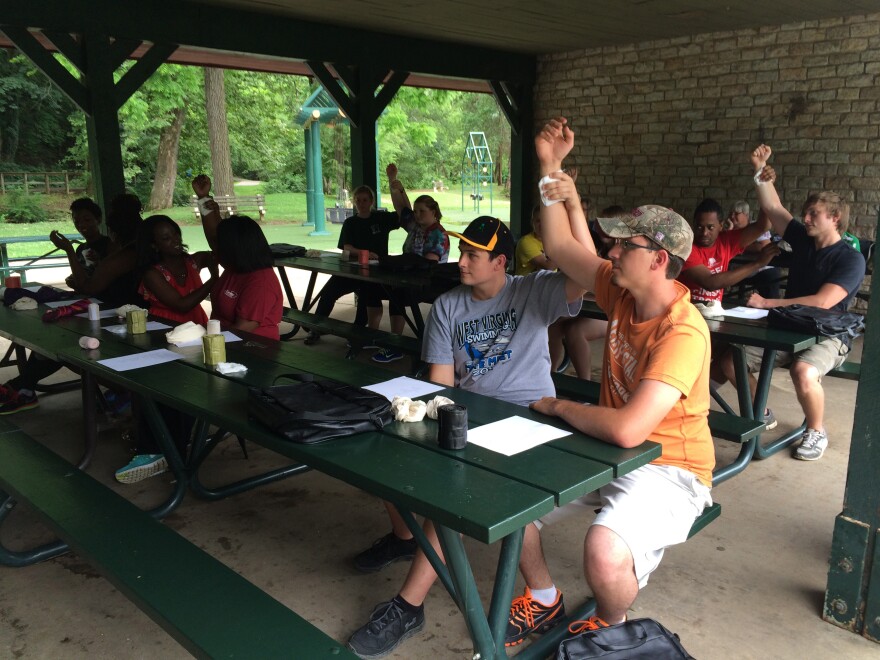College students from all over the region visited Marshall this week to find out if the field of medicine was meant for them.
That’s Chuck Clements, he’s a doctor in family medicine at Marshall University’s Joan C. Edwards School of Medicine. He’s also the instructor for a Wilderness Medicine program that according to med school officials, was the only one of its kind at inception. He taught many of the techniques he teaches in a med school class to undergraduate college students from around West Virginia and Virginia. Students from Bethany College, Concord University, Marshall, Shepherd University, the University of Charleston, West Virginia Wesleyan and Hampton University in Virginia were there. Clements said there techniques that anyone in medicine should know.
“We’re citizens of the community and once you put the white coat on you never take it off and your neighbors and your friends all know what you do,” Clements said.
Clements said there they use the same techniques that any med student would learn in a classroom setting, but it’s about putting students in a setting where all the usual materials aren’t present, thus forcing them to be creative.
“We need to give students an opportunity to learn how to take care of people when they’re away from all their toys that they have in the office, so we give everyone an opportunity to learn some basic skills that they can use when they’re out playing and doing things with their friends,” Clements said.
They learned things like splint building and the unique ways required to stop the bleeding in an extremity when in the woods or on top of a snowy mountain top. Hunter Cutlip is a native of Clarksburg and a student at Shepherd University.
“You learn so much just from hearing everybody’s story, things you don’t even think about as far as residency or what you might do through school or what to expect or kind of how to manage time. It’s been quite the experience, I’ve learned a lot,” Cutlip said.
The fifteen participants also took part in classes that prepared them for the MCAT test. They also learned how to prepare a suture and what it’s like to be involved in the hands-on simulators that are involved in clinical laboratories. Cutlip said he’s not sure of the exact field of medicine yet that he wants to go into, but this experience at Marshall has definitely paid dividends.
“Not anything specific, but I would like to do something with surgery, but I don’t have anything as far as schools or residencies or anything like that, I’m trying to keep my options open and that’s one of the things that I’ve learned at the camp as well, you always need to be looking forward, depending on where you are and your rotations and all that you can be surprised so I’m trying not to make anything to concrete,” Cutlip said.
Jennifer Plymale is the director of the Byrd Center for Rural Health and associated dean of admissions at the school of medicine. She says it is definitely about encouraging students to attend the Marshall medical school, but also that if you’re interested in medicine you don’t have to leave the state.
“It’s a wonderful recruitment effort, but it’s also a retention, if we can get these bright young people in the state of West Virginia to come and stay in West Virginia to do their medical school training and then go on to participate in a West Virginia residency program, we are more likely to keep them in the state,” Plymale said.
This is the second year of the summer academy.





















